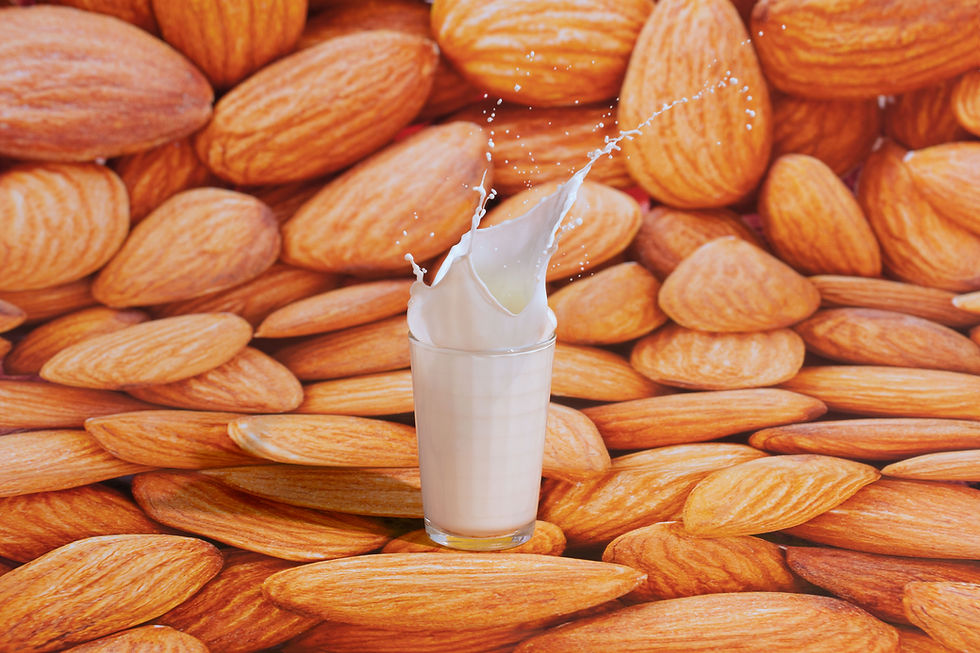Gluten Free for you? Do You REALLY Need to Ditch Wheat?
- octopusdigitalserv
- Jun 8, 2024
- 5 min read
Feeling lost in the gluten-free hype? We clear the air on gluten fact vs. fiction. Learn if you actually need to avoid it, and explore the truth behind this popular dietary trend.
The rise of gluten-free products has sparked a heated debate – is gluten a dietary villain we should all avoid, or is it a misunderstood protein?
Let's explore the conditions where it's a genuine concern, and separate fact from fiction regarding gluten sensitivity and its impact on health.

What is Gluten?
Gluten is a group of proteins found in grains like wheat, barley, rye, and their derivatives. It's composed of two main components: gliadin and glutenin. Gliadin provides dough with its elasticity, allowing it to rise and hold its shape. Glutenin contributes to the chewiness of baked goods. Common gluten-containing foods include bread, pasta, cereals, baked goods, and many processed foods that contain wheat flour, barley malt, or rye flour as ingredients.
The Science Behind Gluten
Composition: Scientifically, gluten is a storage protein found in the endosperm (starchy center) of wheat, barley, and rye. The two main components, gliadin and glutenin, have unique properties. Gliadin is a prolamin protein, meaning it has a high content of proline amino acids, making it insoluble in water. This characteristic contributes to gluten's adhesive properties. Glutenin, on the other hand, is a group of globular proteins that provide dough with its elasticity.
Role in Food: During breadmaking, gluten plays a crucial role. When flour comes in contact with water, gluten forms a network of elastic strands. This network traps carbon dioxide produced by yeast during fermentation, allowing the dough to rise. Additionally, gluten helps maintain the shape of the dough during baking, leading to a light and airy final product.
Celiac Disease: A Genuine Concern
Celiac disease is a serious autoimmune disorder triggered by gluten consumption. When individuals with celiac disease ingest gluten, their immune system mistakenly attacks the lining of the small intestine, leading to inflammation and damage. This damage can hinder the absorption of essential nutrients, causing various health problems.
Estimates suggest that celiac disease affects approximately 1% of the global population, though many cases remain undiagnosed.
Symptoms and Diagnosis: Symptoms of celiac disease can vary from person to person and may include:
Diarrhea
Bloating
Gas
Fatigue
Weight loss
Abdominal pain
Anemia
Iron deficiency
Vitamin deficiencies (vitamin B12, folate)
Skin rashes (dermatitis herpetiformis)
Diagnosis of celiac disease typically involves a two-pronged approach: blood tests and an endoscopy. Blood tests can detect antibodies produced by the immune system in response to gluten. An endoscopy allows a doctor to examine the small intestine for signs of damage caused by gluten.
Treatment: The only effective treatment for celiac disease is a strict, lifelong gluten-free diet. This means eliminating all sources of gluten from the diet, including wheat, barley, rye, and potentially oats (due to potential cross-contamination). Even small amounts of gluten can cause damage in individuals with celiac disease, making strict adherence to a gluten-free diet crucial for managing symptoms and preventing complications.
Non-Celiac Gluten Sensitivity: Myth or Reality?
Non-celiac gluten sensitivity (NCGS) is a condition where individuals experience symptoms similar to those of celiac disease after consuming gluten, but without the presence of the autoimmune response or intestinal damage characteristic of celiac disease. The exact cause of NCGS remains unclear, but it's believed to involve factors like gut sensitivity, altered immune function, or reactions to other components of wheat besides gluten.
Symptoms and Challenges: Symptoms of NCGS can overlap with celiac disease and may include:
Digestive issues (diarrhea, bloating, gas)
Headaches
Fatigue
Mood disturbances (irritability, anxiety, depression)
Joint pain
Brain fog
Diagnosis: There is no single definitive test for NCGS. Diagnosis typically involves ruling out celiac disease and wheat allergy through blood tests and an endoscopy. If these tests come back negative and symptoms improve on a gluten-free diet, NCGS may be suspected. However, other conditions can mimic NCGS symptoms, so a thorough evaluation by a healthcare professional is crucial.
Gluten-Free Diet: A Trend or Necessity?
The rise of gluten-free options in supermarkets has fueled the perception that gluten is inherently unhealthy. However, it's important to distinguish between those who genuinely need a gluten free diet due to celiac disease or NCGS, and those who may be following it for other reasons.
Benefits for Non-Sensitive Individuals:
There is currently no strong scientific evidence that a gluten-free diet offers significant health benefits for individuals without celiac disease or NCGS. Some studies have explored potential benefits for those with irritable bowel syndrome (IBS), but the research is inconclusive.
Potential Downsides:
While gluten-free options have become more prevalent, many commercially available gluten-free products can be higher in sugar, fat, and calories compared to their gluten-containing counterparts. This is because manufacturers often use refined starches, sugars, and gums to compensate for the lack of gluten's binding properties and achieve a desirable texture. Additionally, a strict gluten-free diet can lead to nutrient deficiencies, especially in fiber, iron, and B vitamins. Many gluten-containing grains are naturally rich in these nutrients, and eliminating them from the diet without careful planning can create nutritional gaps.
Gluten Myths Busted
Here are some common myths surrounding gluten:
Myth: Gluten is harmful to everyone.
Fact: Gluten is safe for most people. Only those with celiac disease, NCGS, or wheat allergy need to avoid it.
Myth: A gluten-free diet is inherently healthier.
Fact: A gluten-free diet can lack essential nutrients and may include more processed foods, which are not necessarily healthier.
Myth: Gluten causes weight gain.
Fact: Weight gain is typically related to overall diet and lifestyle, not gluten itself. Gluten-free products can sometimes be higher in calories and lower in fiber, which can contribute to weight gain if not balanced with other healthy choices.
Myth: Going gluten-free will boost my energy levels.
Fact: There is no scientific evidence to support this claim for individuals without underlying gluten sensitivity.
Should You Avoid Gluten?
If you suspect you have celiac disease or NCGS, avoiding gluten is crucial for your health and well-being. However, if you do not have these conditions and are not experiencing any negative effects from gluten, there's no medical reason to eliminate it from your diet. Focus on building a balanced diet rich in whole grains, fruits, vegetables, lean proteins, and healthy fats. This approach will provide your body with the essential nutrients it needs to thrive.
Listening to Your Body:
If you experience digestive discomfort, bloating, or other symptoms after consuming gluten, consult with a healthcare professional for proper testing and diagnosis. Self-diagnosing and starting a gluten-free diet without medical guidance can lead to unnecessary dietary restrictions and nutrient deficiencies. A doctor can help you determine the cause of your symptoms and recommend the best course of action.
Conclusion
Gluten has become a hot-button topic in the world of health and nutrition. The truth is, gluten is not inherently bad for most people. However, it's crucial to understand the conditions where it can be a genuine concern. For those with celiac disease or NCGS, a strict gluten-free diet is essential.
Remember, the key takeaway is to be informed about your individual needs and consult with a healthcare professional before making significant dietary changes. By understanding the facts about gluten, you can make informed decisions about your health and enjoy a balanced, nutritious diet that works for you.




Comentarios